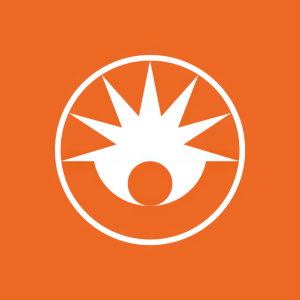New Survey Reveals Patients Receive Too Many Needlesticks
- None.
- None.
Most Americans Unaware of Challenges from Common Hospital Procedures
The "accepted but unacceptable" practice of repeated needlesticks
Needlesticks are an often-overlooked challenge but can be one of the most traumatic aspects of a patient's hospital stay. More than half of Americans (
The survey findings reflect that this concern isn't unwarranted: a shocking
Nurses agree that repetitive needlesticks negatively impact patient care delivery and workflow
Unsurprisingly, the survey highlights strong concern from nurses on the impact of repeated needlesticks to the patient care experience. A strong majority of nurses agree that repeated needlesticks negatively impact the patient experience and say that alternatives are needed to reduce the number of needlesticks patients encounter (
More than just providing a better experience, nurses agree that delays to patient treatment caused by difficult venous access or fear of needles are a problem (
"Repeated needlestick attempts create additional work and add stress for the frontline clinician, many of whom are already feeling the impact of increased patient volume, labor shortages and unprecedented staffing demands," said Rachelle Landry, a registered nurse (RN) and vice president of Clinical Transformation at BD. "Additionally, repetitive sticks risk damaging a patient's vessel health and future access for care needs."
Interest in new solutions is high – but more education and advocacy are needed to drive change
New technologies are available now, such as ultrasound guidance systems to drive first-stick insertion success for IVs and needle-free blood collection that uses an existing IV line to draw a blood sample without the additional stick.
However, while relatively few Americans are aware of these technologies (
After having seen the various risks associated with needlesticks, most Americans (
A vision for a better future
BD has long been on the path toward creating a better and more compassionate standard of care for patients and providers through its "One-Stick Hospital Stay" vision that imagines a future where a needlestick could be a single occurrence during a hospital stay. This includes a three-pronged approach to advance the standard of care for IV therapy and blood draws: 1) enable the right device to be placed successfully the first time; 2) use that device as a single access point for required therapies and blood draws; and 3) help the device last throughout the patient's hospital stay.
Survey methodology
This survey was conducted online in the United States by The Harris Poll on behalf of BD among 2,006 adults age 18+ from December 11-28, 2023, including those who have received IV therapy or blood draws during a hospital stay lasting overnight or longer in the past 24 months. The sampling precision of Harris online polls is measured by using a Bayesian credible interval. For this study, the total sample data is accurate to within +/- 2.8 percentage points using a
Editor's Note: For complete research method and additional survey results, including subset sample sizes, please contact Alyssa Kretlow.
About BD
BD is one of the largest global medical technology companies in the world and is advancing the world of health by improving medical discovery, diagnostics and the delivery of care. The company supports the heroes on the frontlines of health care by developing innovative technology, services and solutions that help advance both clinical therapy for patients and clinical process for health care providers. BD and its more than 70,000 employees have a passion and commitment to help enhance the safety and efficiency of clinicians' care delivery process, enable laboratory scientists to accurately detect disease and advance researchers' capabilities to develop the next generation of diagnostics and therapeutics. BD has a presence in virtually every country and partners with organizations around the world to address some of the most challenging global health issues. By working in close collaboration with customers, BD can help enhance outcomes, lower costs, increase efficiencies, improve safety and expand access to health care. For more information on BD, please visit bd.com or connect with us on LinkedIn at www.linkedin.com/company/bd1/, X (formerly Twitter) @BDandCo or Instagram @becton_dickinson.
Contacts: | |
Media: | Investors: |
Alyssa Kretlow | Adam Reiffe |
BD Corporate Communications | BD Investor Relations |
551.238.4391 | 201.847.6927 |
![]() View original content to download multimedia:https://www.prnewswire.com/news-releases/new-survey-reveals-patients-receive-too-many-needlesticks-302100081.html
View original content to download multimedia:https://www.prnewswire.com/news-releases/new-survey-reveals-patients-receive-too-many-needlesticks-302100081.html
SOURCE BD (Becton, Dickinson and Company)








